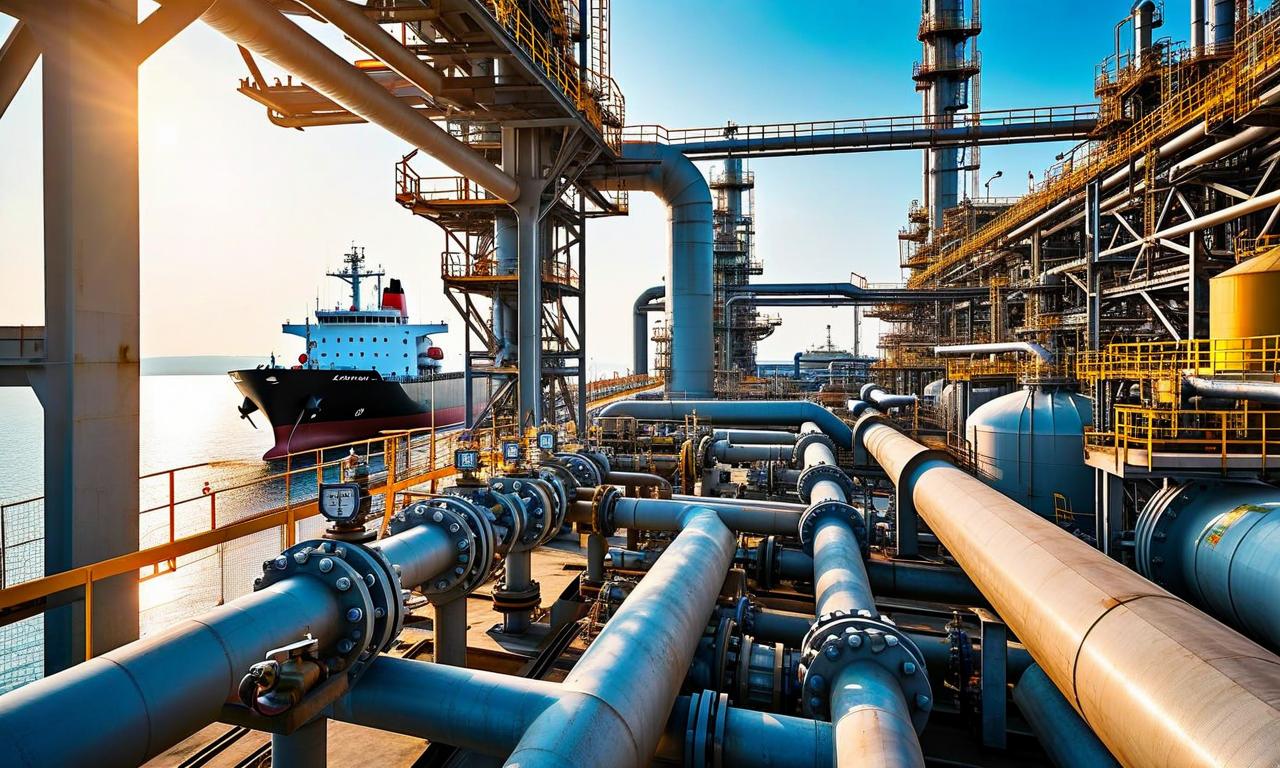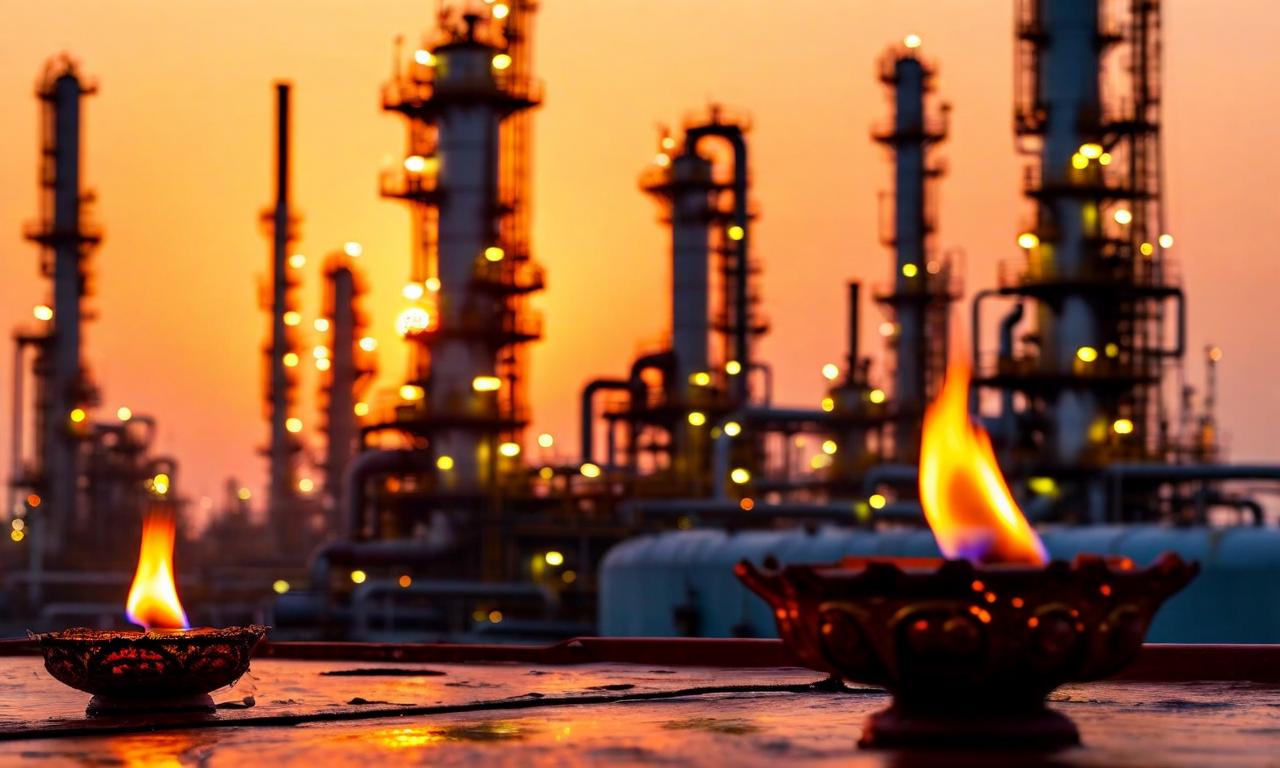Indian Oil Corp Secures 15-Year LNG Supply Deal with Abu Dhabi National Oil Co
Indian Oil Corp (IOC) has signed a 15-year agreement with Abu Dhabi National Oil Co (Adnoc) for the annual supply of 1 million tons of LNG, primarily from Adnoc's upcoming Ruwais project. This deal, combined with an existing contract, will make IOC Adnoc's largest LNG customer by 2029. The Ruwais facility, set to start operations in 2028, will double Adnoc's LNG capacity to 15 million tons annually. This agreement aligns with India's plan to increase natural gas in its energy mix and enhances IOC's ability to meet growing energy demands.

*this image is generated using AI for illustrative purposes only.
In a significant move to bolster India's energy security, Indian Oil Corp (IOC) has inked a long-term liquefied natural gas (LNG) supply agreement with Abu Dhabi National Oil Co (Adnoc). The deal, spanning 15 years, will see Adnoc supplying 1 million tons of LNG annually to IOC, primarily from its upcoming Ruwais project.
Strengthening Energy Ties
This new agreement builds upon an existing partnership between the two oil giants. IOC already has a contract with Adnoc for 1.20 million tons of LNG per year from its Das Island operations. With the addition of the new deal, IOC is set to become Adnoc's largest LNG customer by 2029, underscoring the growing energy cooperation between India and the United Arab Emirates.
Ruwais Project: Doubling Adnoc's LNG Capacity
The LNG for the new agreement will primarily come from Adnoc's Ruwais project, which is currently under construction. Expected to commence commercial operations in 2028, the Ruwais facility will play a crucial role in doubling Adnoc's LNG capacity to 15 million tons annually.
Strategic Importance for Both Parties
For Adnoc, this deal represents another step towards securing long-term customers for its expanded LNG production. The company has already committed over 8 million tons of the Ruwais project's 9.60 million-ton capacity to international customers through long-term agreements.
From India's perspective, this agreement aligns with the country's strategic plan to increase the share of natural gas in its energy mix by the end of the decade. As a cleaner-burning fossil fuel, LNG is expected to play a vital role in India's transition towards a more sustainable energy future.
Implications for Indian Oil Corp
For Indian Oil Corp, one of India's largest oil and gas companies, this deal ensures a stable, long-term supply of LNG. This security of supply is crucial for IOC's operations and its ability to meet the growing energy demands of the Indian market. The agreement also positions IOC as a key player in India's efforts to diversify its energy sources and reduce its carbon footprint.
Conclusion
As India continues to pursue its ambitious energy goals, partnerships like this one between IOC and Adnoc are likely to become increasingly important. They not only strengthen bilateral ties but also contribute significantly to the energy security and sustainable development of both nations.


























